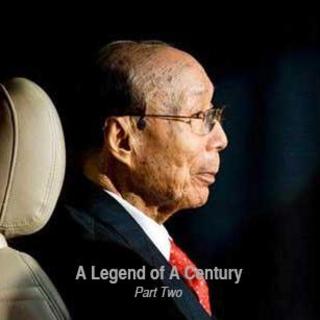
介绍:
Shaw also tried his hand at producing American films in the late 70s and early 80s, including 1982 sci-fi classic "Blade Runner" and 1979 disaster thriller "Meteor."
The influence of Shaw's movies spans vast distances. When talking about his preparation for the action film "Kill Bill", American movie director Quentin Tarantino told the press he had watched one old Shaw Brothers movie a day for a year, if not three. Tarantino also paid tribute to Shaw by beginning the film with the Shaw Brothers scallop and trumpet fanfare.
As a shrewd businessman, even in his heyday, Shaw was able to sense the future would be in television. In 1967, Shaw co-founded TVB, which remains Hong Kong's dominant TV station. TVB has now grown into a multi-billion dollar TV empire with channels broadcast in 30 markets including the U.S., Canada and Taiwan.
For TV audiences, TVB is the symbol of many classic television series of which only the slightest hint would send people into nostalgic daydreams.
At the top of the list of classic shows is of course "the Bund", a love story between gangster boss Hui Man-Keung and Fung Ching-ching, daughter of a wealthy tycoon.
And "Looking Back in Anger", a retrospective on business tycoon Ding Yau Kin's life.
Another memorable classic was the 1983 martial art TV series "The Legend of the Condor Heroes".
With its ever sought-after TV series, TVB has seen a considerable amount of talented individuals rise to stardom internationally. Actor Chow Yun-fat, actress Maggie Cheung, singers Leslie Cheung and Anita Mui and director Wong Kar-wai all started out at TVB.
Chow Yun-fat attributes his success to Shaw.
"He started TVB with his bare hands all by himself. He trained many talented stars like me. May he rest in peace."
Shaw set up the TVB Talent Training Course and the beauty contest Miss Hong Kong Pageant in order to produce future stars for his TV station. One thing he probably would never have imagined is that many of the stars that the two programs cultivated, such as Tony Leung, Lau Kar-ling and Michele Monique Reis, later became the pillars of the Chinese showbiz industry.
In 2011, Shaw retired from his position as chairman of TVB at the age of 104 after more than 40 years of service.
However, what made Shaw more of an enduring influence is perhaps his philanthropy. He made billions in film and television and gave back nearly as much to society.
Since 1985, he donated about 4.75 billion Hong Kong dollars on educational programs across the Chinese mainland. On a map recently provided by one of China's largest search engines, buildings adorned with Shaw's name are visible in clusters across the country. And in Hong Kong, it seems as if half of the public buildings have his name on them.
Shaw also established "The Shaw Prize" in 2002, later widely regarded as the "Nobel of the East"; an annual award honoring those who made significant contributions to academic and scientific research or application.
And on occasions of disaster relief, he was often among the top donors.
Leung Chun-ying, chief executive of Hong Kong spoke out on Shaw's contributions to society.
"Shaw has made great philanthropic contributions in Hong Kong, to education in both Hong Kong and the Chinese mainland and to scientific research globally. He is a venerable father figure to us."
Run Run Shaw was knighted by Queen Elizabeth II in 1977.
China's Purple Mountain Observatory discovered an asteroid in 1964 and named it 2899 Runrun Shaw in honor of him.
Across 107 years, Run Run Shaw became a guiding light that will illuminate generations for years to come.
上一期: Runrun Shaw, A Legend of A Century - Part One
下一期: Obama Welcomes Agreement to Implement Interim Deal on Iran Nuke Program
下一期: Obama Welcomes Agreement to Implement Interim Deal on Iran Nuke Program
大家还在听

